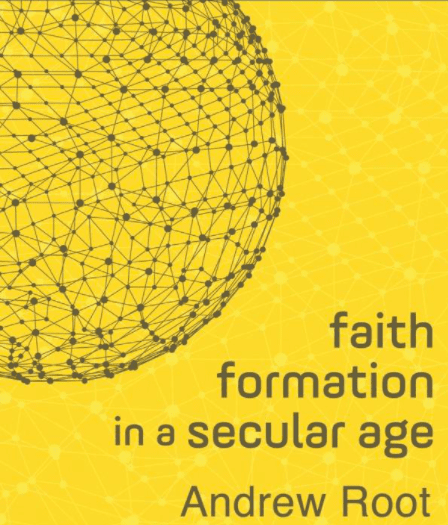 Andrew Root, building on Charles Taylor, calls our era the Age of Authenticity. (Faith Formation in a Secular Age.) In that label is a potent description of what “faith formation” looks like in a “secular age” when authenticity is the major virtue and youthfulness its hero. Root is one of America’s leading lights on youth pastoral ministry but…
Andrew Root, building on Charles Taylor, calls our era the Age of Authenticity. (Faith Formation in a Secular Age.) In that label is a potent description of what “faith formation” looks like in a “secular age” when authenticity is the major virtue and youthfulness its hero. Root is one of America’s leading lights on youth pastoral ministry but…
Don’t mistake this book as one shaped only for youth pastors and ministry; this is a potent book for pastoral ministry in our world.
It’s required reading.
The age of authenticity, which gets its kickstart in the late 1960s and ties back to Romanticism and Expressivism, is
the age when your personal truth is what matters,
when you are to find yourself,
and when you have to be true to yourself.
It is the age when we toss off oppressive controls.
The age when the self is no longer “porous” but “buffered” so as not to be vulnerable but to be protected.
The age of authenticity is when it is no longer the elites who are authentic selves facing off with tradition but when the populace joins the facing off.
It is the age when the church becomes boring and irrelevant.
Moral Therapeutic Deism, then, is not the problem but the symptom of authenticity and of… youthfulness.
To become relevant is to become attractive to those most authentic: the youth. Thus, to be authentic is to be youthful. Faith formation today then means following the master called youthfulness.
The regular accusation against the church is about sex and money, but … the issue is about authenticity and inauthenticity, about integrity and a lack of integrity, but the terms are about self-expressivism.
In the age of authenticity, of course, sex scandals and money laundering are black eyes, but not because they show that the church serves a false transcendent force or that its leaders have given themselves over to the devil. Rather, it’s because they reveal a deeper problematic for us contemporaries: they expose the church as inauthentic and fake. If they preach one thing and do the opposite, that is inauthentic because it lacks integrity (and also because the things it is doing are evil). But we can at least respect an evil and corrupt corporation for being consistent with its stated purpose. It is who it says it is, and that is honorable. Worse than being evil is being inauthentic.
Authenticity is to pursue what brings you the buzz; to surrender the buzz is to be authentic. Church then must deliver the personal buzz.
In the age of authenticity, to be bored is not simply unfortunate or unpleasant; it is to be oppressed, to be violently cornered and robbed of authenticity. We as individual selves are now responsible for our own spiritual journey, so if something is boring, it is worth abandoning. To be bored is to find our subjective desires minimized, repressed, or, at the very least, unmet. … But the age of authenticity also reminds us that our experience is deeply meaningful, that our embodied, emotive encounter with reality can and should mean something.
What bothered the tradition in the 1960s was sex, drugs and rock. But what were they? Signs of breaking free from inauthenticity.
Sex, drugs, and rock and roll are concrete expressions and practices of authenticity. They are not authenticity itself but are the very activities (tools) used to free the individual from the repressive culture of the nineteenth century and, importantly, its doppelgänger in the 1950s.
Faith formation today then is not disconnected from the move of authenticity at work in our culture, remembering that authenticity is about self-realization. Spiritual formation concerns … notice how often they are individualistic and shaped for each person’s development.
To talk today of faith formation as our objective (which is necessary) is to recognize how squarely our feet rest in the age of authenticity. We talk of faith formation because we breathe the air of authenticity and assume that everyone (young or old) has his or her own individual path to choose.
Youth is where authenticity is found. Why? They are pursuing authenticity by challenging the tradition.
Youthfulness legitimizes (as Thomas Frank will reveal more directly below); there is no better marketing than youthfulness itself. If the youthful like the doohickey or politician, then it is authentic, and authenticity is king of our time.
In college the critique of Christianity seems more authentic because it is more youthful, calling religion repressive, ignorant, and a major buzzkill. Or the lifestyle of hooking up, binge drinking, and having fun is more formative because it is the height of authenticity, because it is what you do when you’re young and is what you wish for when you’re not (as demonstrated by virtually any Seth Rogen movie). The worst thing you can do in the age of authenticity is waste your youth.











